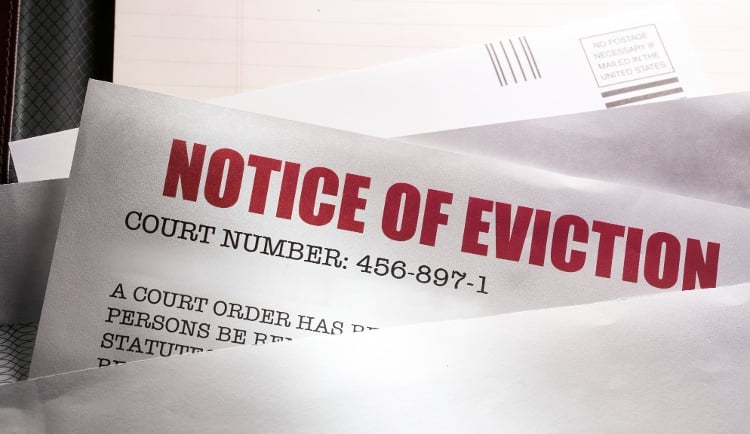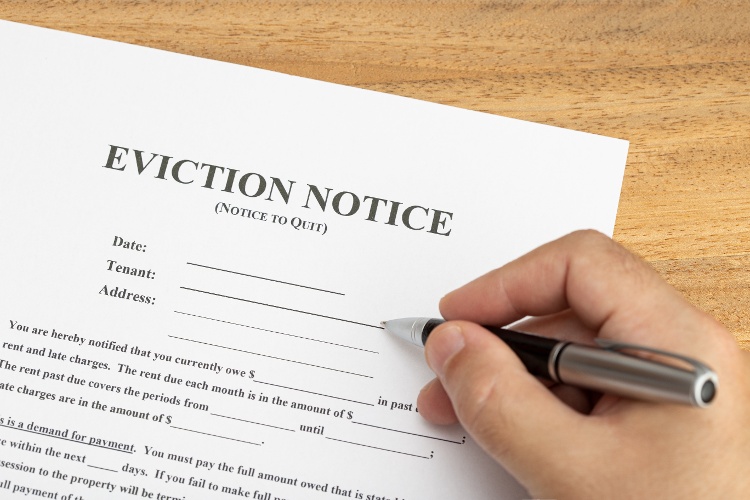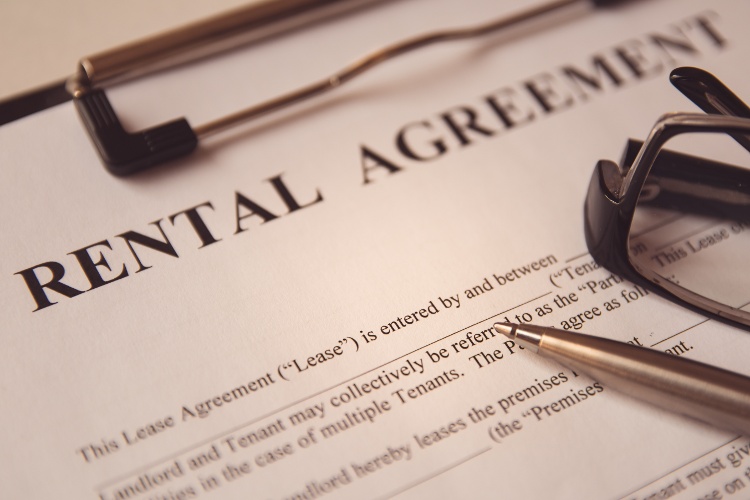No landlord wants to evict a tenant, but sometimes you’re left with no other choice.
Evictions take a surprising amount of time and during the process the tenant isn’t paying the rent. The faster you can evict a tenant, the sooner you’ll be able to re-rent your home to a better tenant and minimize lost rental income.
In this article, we'll explain how the eviction process timeline works, how to speed up an eviction, and some surprising ways to avoid having to evict a tenant altogether.
Overview of the Eviction Process
The exact steps for evicting a tenant vary from state to state, and sometimes even by city within the same state. Make one mistake, and you may need to begin the eviction process all over again, or even worse, be penalized by the state or have the tenant turn around and try to sue you.
Trying to evict a tenant yourself can be tricky. That’s why it’s important to understand your state landlord-tenant laws. If you have any doubts, you should consult a real estate attorney who specializes in residential evictions in the market your rental property is located in. In many cities, eviction attorneys work for a flat fee instead of an expensive hourly rate.
With that in mind, let’s begin by taking a quick look at how the eviction process works:
- Landlord gives notice of default (such as past-due rent)
- Tenant cures the default or continues to be in default
- Prepare documents to evict the tenant or hire an eviction attorney
- Hire process server to serve tenant with eviction notice
- Allow tenant time to respond to eviction notice
- Schedule a court hearing
- Attend court hearing where the judge hears both parties and examines evidence
- Court rules in favor of the landlord or the tenant
- Sheriff evicts the tenant if the property is still occupied
Eviction Process Timeline
The entire process for evicting a tenant could be 30 days or more from start to finish. Now let’s take an in-depth look at the general timeline for evicting a tenant:
1. Landlord gives notice of default: 3 days
Most residential lease agreements give the tenant a grace period to pay the rent before it is past due, usually the 3rd of the month.
That means that on day number three you can give the tenant a default notice that describes what the tenant has done (such as a non-payment of rent) and what they must do by when to remedy the situation (such as paying the rent in full plus any accumulated fees).
Notice is normally served in multiple ways including physical delivery and by certified mail with a return receipt requested.
2. Tenants cures default (or not): 3-14 days
After receiving the notice the tenant is allowed time to remedy the situation by paying the rent or leaving the property. In some states, the tenant is still liable for the remaining unpaid rent under the terms of the lease until the property is rented to a new tenant, even if they voluntarily leave.
3. Prepare documents for the lawsuit: 1-7 days
Documents you will need for an eviction lawsuit include a copy of the lease signed by you and the tenant, a copy of the notice served to the tenant, and evidence that the notice was received or that the tenant refused to sign for the certified mail.
You should also make copies of any correspondence you’ve had with the tenant, including notes from phone calls and emails, maintenance requests from the tenant and when the repairs were made.
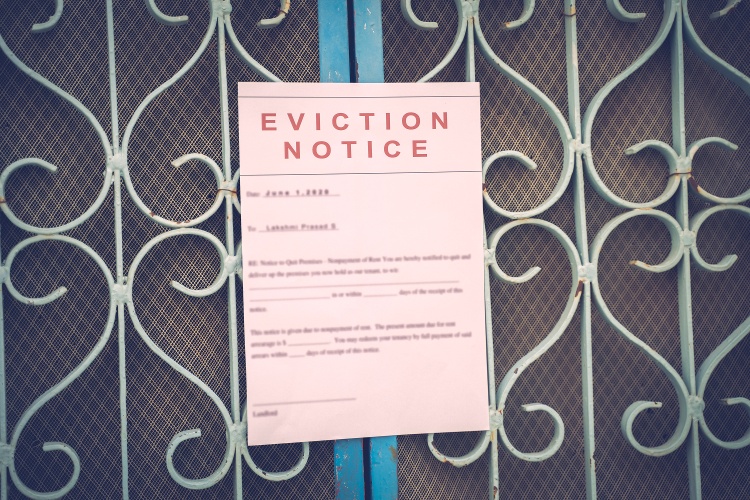
4. Serve the tenant a summons: 1-10 days
A process server then serves the tenant with a lawsuit notice. Serving the tenant can happen quickly or could take days or weeks if the tenant manages to avoid the process server.
5. Tenant responds to notice: 7-10 days
After the tenant is served they have a legal time frame in which to respond to the lawsuit notice, usually within a week or 10 days. Oftentimes the tenant will fail to respond to the eviction lawsuit notice and simply wait for the clock to run out.
6. Schedule court hearing: 7-10 days
Once the tenant has responded to the notice – or the statutory time for a response has elapsed – the case will be heard by the court. How quickly an eviction case is scheduled depends on the volume of cases being heard and how quickly the local court system operates.
7. Attend court hearing date and receive a ruling: 0-7 days
Frequently a tenant will not show up for their court date because they’ve already vacated the property. If the tenant does not appear in front of the court the judge will rule in favor of the landlord who has taken the time to attend the hearing.
Every now and then a tenant will attend the hearing and claim that the rent wasn’t paid because the landlord didn’t hold up its end of the lease.
The tenant might say that the property is in disrepair or that they never received notice the rent was past due. That’s why it’s important to bring all documents to court, so that the judge can quickly review the evidence and rule in your favor. If evidence is missing or the claims are more complex, it could take the judge longer to rule.
8. Sheriff evicts tenant: 1-30 days
The last step in the eviction process is for the sheriff to evict the tenant, assuming they are still in the property. The sheriff will schedule a time to meet you at the property and remove the tenant.
At this point, it’s a good idea to have a locksmith change all of the locks, and also disconnect any garage door opener and secure the door. You should also prepare an itemized list of any damage the tenant has caused (other than normal wear and tear) and the cost to make repairs to the property, so that you can deduct the repair costs from the tenant’s security deposit.
Keep in mind that if your eviction occurs during the holidays, even landlord-friendly states such as Indiana, Georgia, Texas, and Arizona will delay evicting tenants until after the holidays are over.
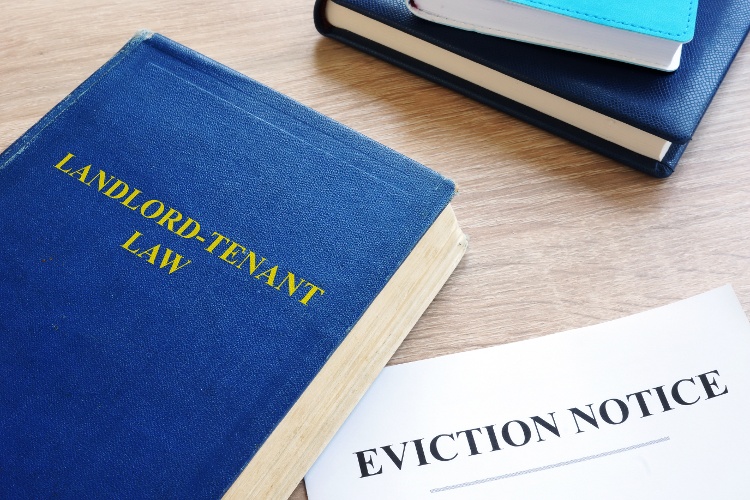
Can a Tenant Win an Eviction Lawsuit?
A tenant can win an eviction lawsuit, but the reasons a tenant can win are entirely within the landlord’s control.
According to “How to Delay an Eviction” from the legal resource website Nolo, the most common mistakes landlords make that allow tenants to win an eviction include:
- Improper procedure such as not following the eviction process
- Uninhabitable premises
- Illegal retaliation such as a tenant complaint about the landlord to the neighbors
- Accepting a partial rent payment
- Illegal housing discrimination
- Constructive eviction such as turning off the utilities
How to Speed Up an Eviction
No landlord wants to lose two months or more of rental income because of a lengthy eviction. The good news is that there are typically several things you can do to speed up an eviction:
- Act quickly and give the tenant notice immediately after the grace period ends
- Follow the legal eviction process and refuse to cut corners
- File all paperwork with the court promptly to avoid unnecessary delays
- Hire a real estate attorney who specializes in residential evictions
- Offer the tenant cash for keys to leave can be much less expensive than a costly eviction lawsuit
Ways to Prevent an Eviction
Preventing eviction begins the day the tenant moves in. As part of the move-in walkthrough, review the terms and conditions of the lease with the tenant, including when the rent is due and other obligations the tenant has, such as keeping your property in good condition.
Explain in a matter-of-fact way what happens when a tenant defaults on the lease. Be sure to describe the ramifications of being evicted, such as a bad credit report and a judgment to collect unpaid rent by garnishing wages.
Keep the lines of communication open after the tenant moves in. Sometimes tenants simply forget to pay the rent, and a quick phone call or text message can serve as a gentle reminder that the rent is due on the 1st of the month. Setting up an online payment system for the tenant to pay rent can also make it easier for the tenant to pay and improve your cash flow.
If you do have to evict a tenant, learn from your mistakes. Consistently screen all potential tenants in-depth, including pulling a credit report, conducting a background check, and order rental history and eviction history reports before signing the rental agreement.
Final Thoughts
Evictions can be time-consuming and stressful for a new landlord. Once you go through one, you’ll do everything you can to avoid having to evict a tenant again. Even the most experienced rental property investors have an eviction every now and then.
By knowing what to do and when, you can speed up the eviction process by following the spirit and letter of the law, or even cash for keys to avoid the eviction process altogether.


